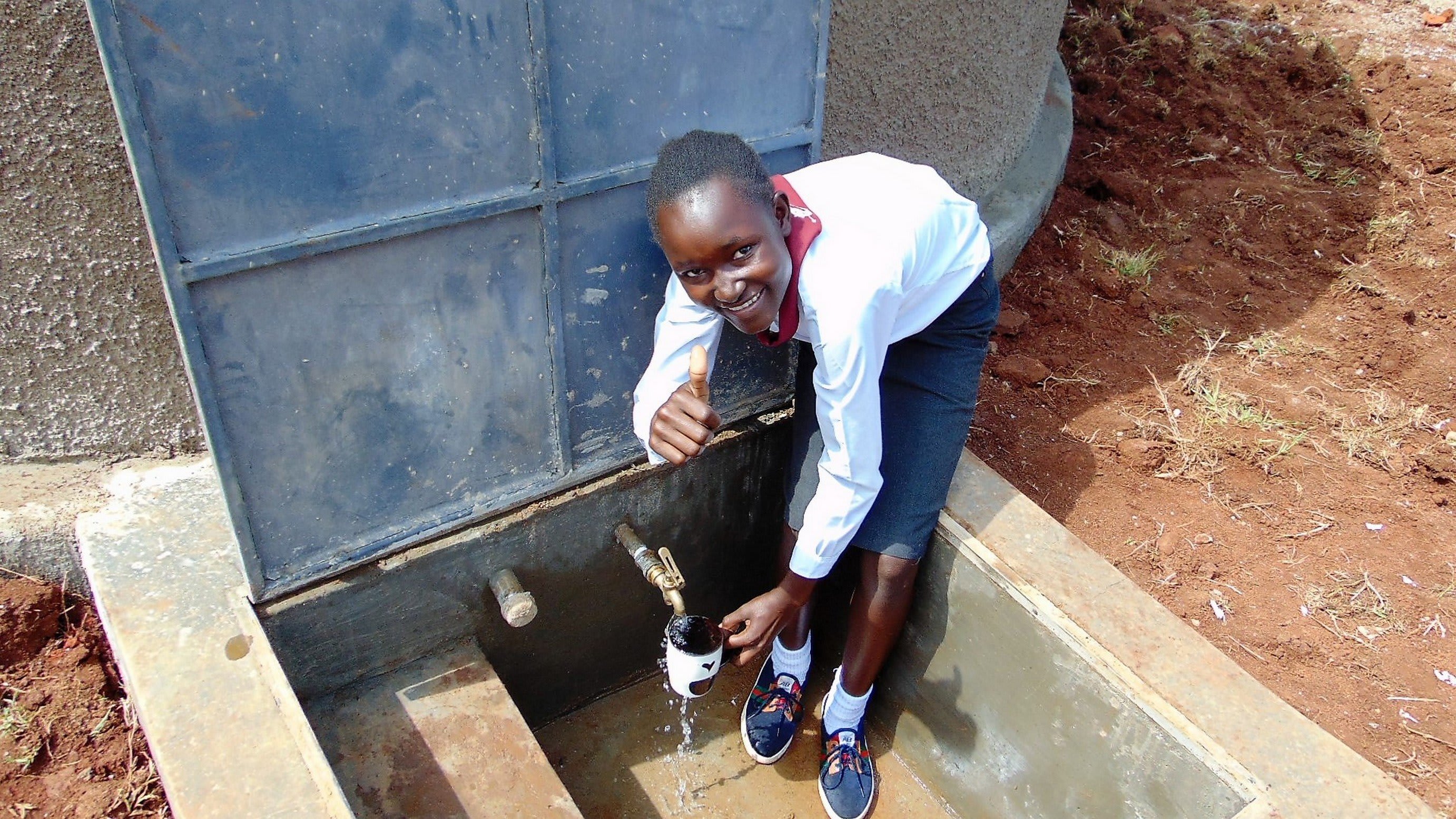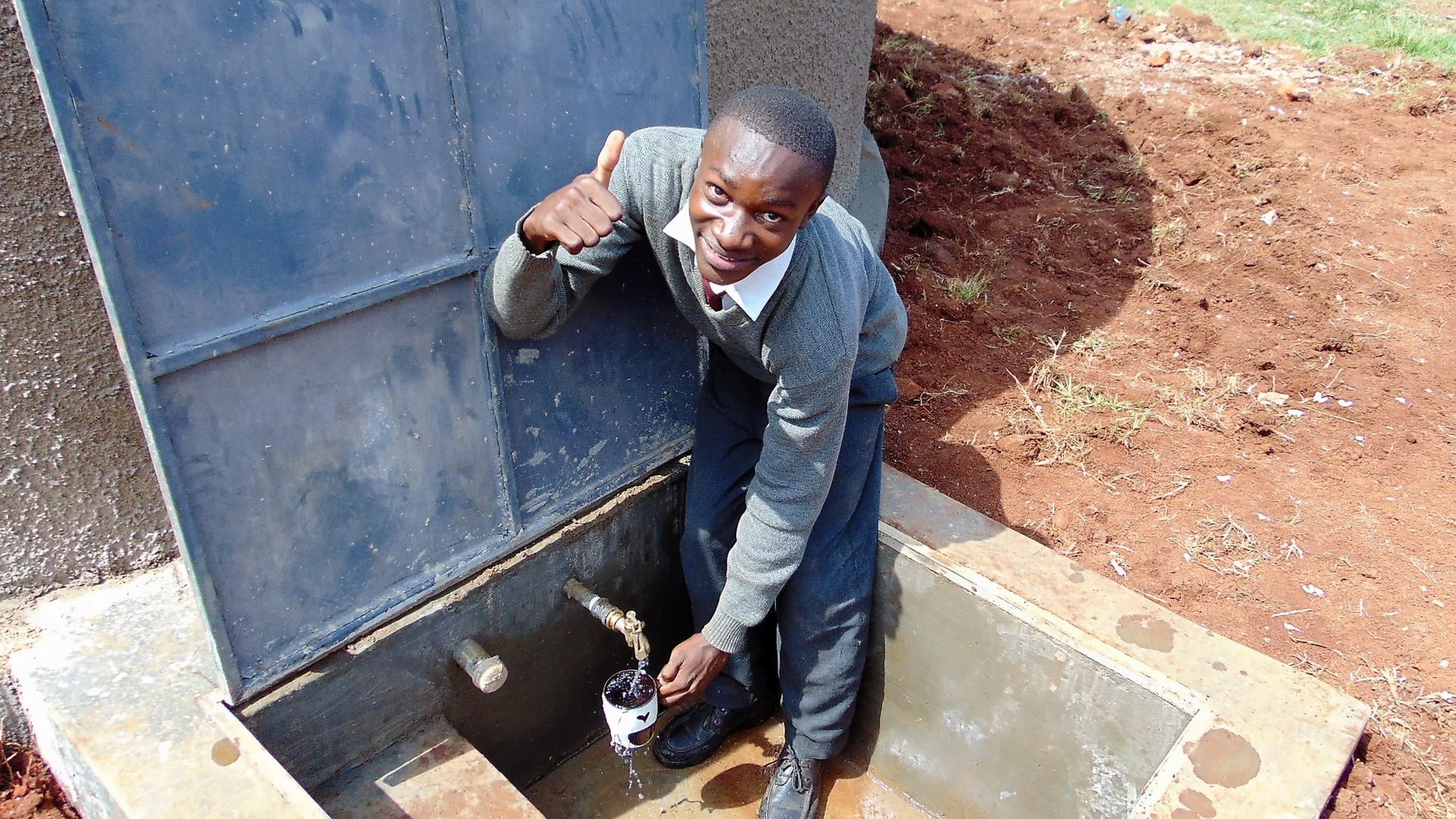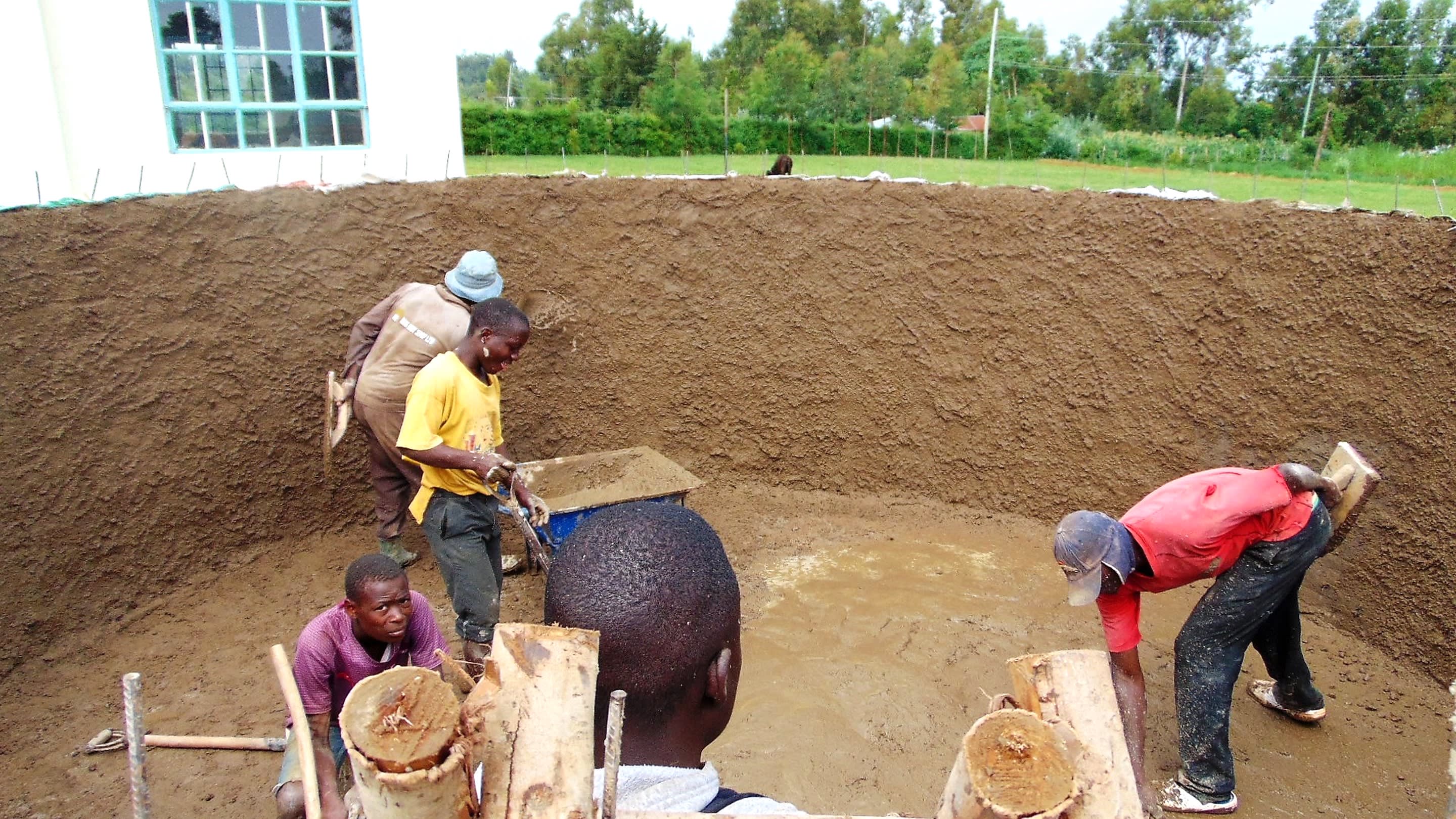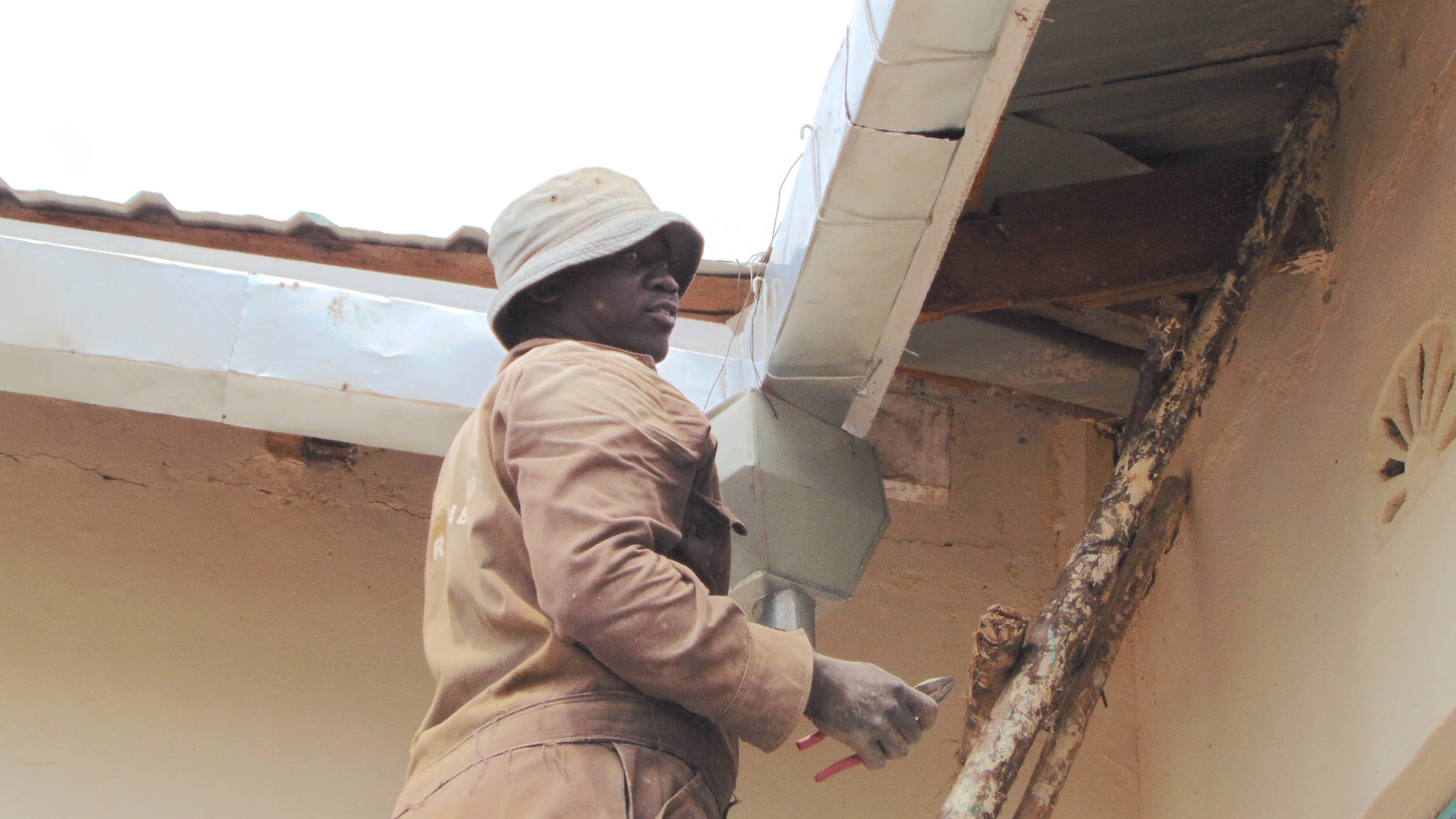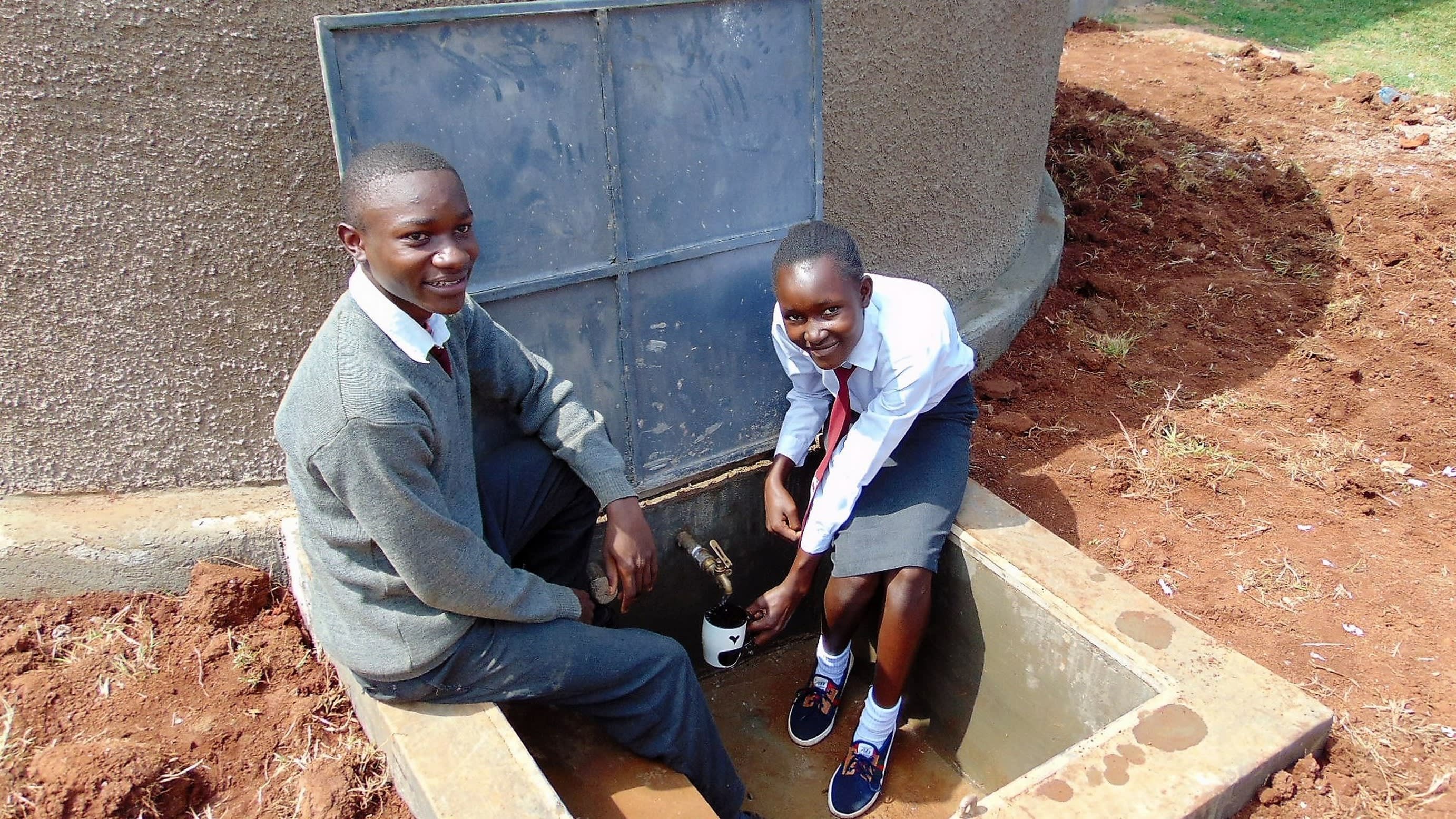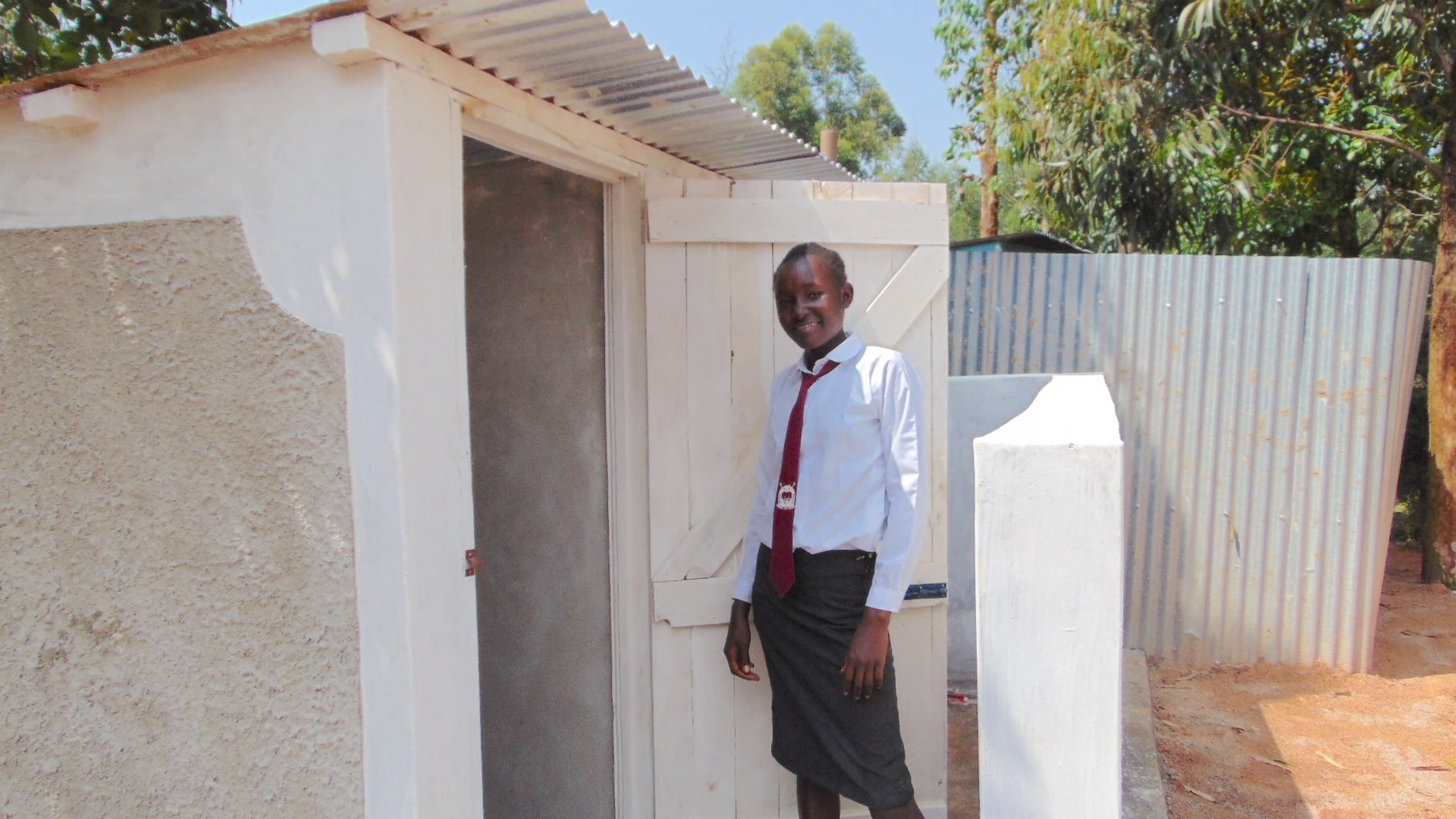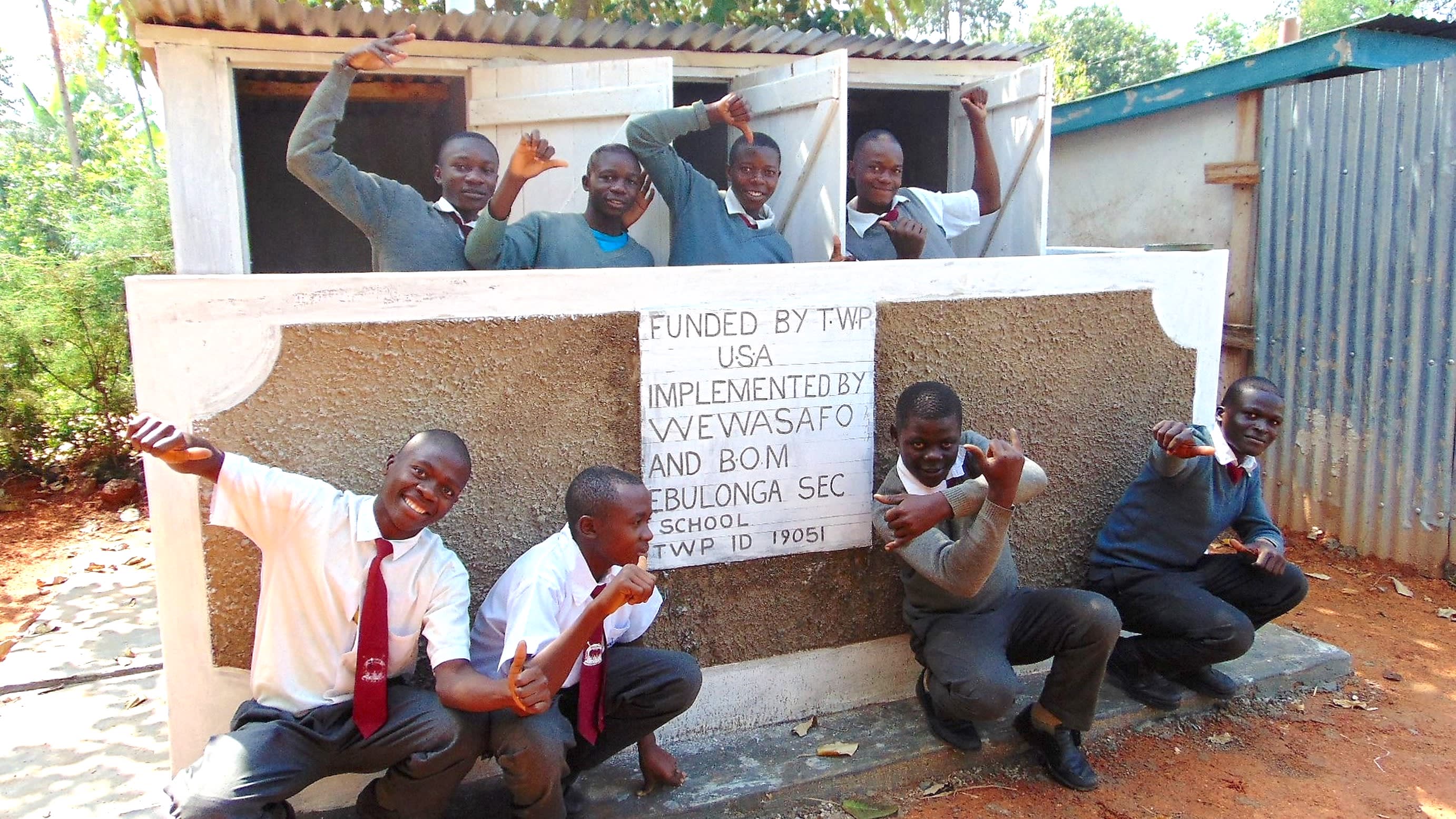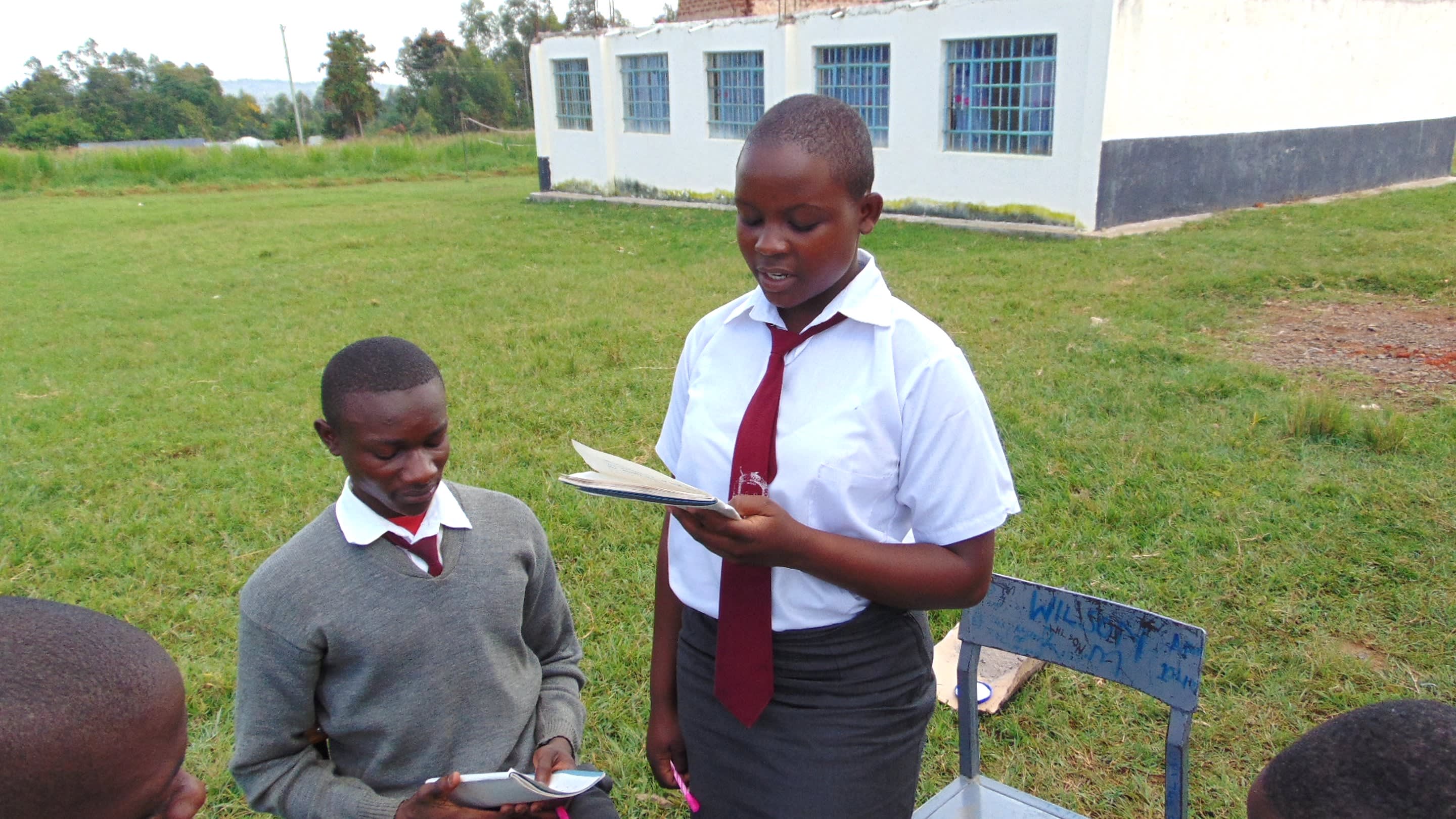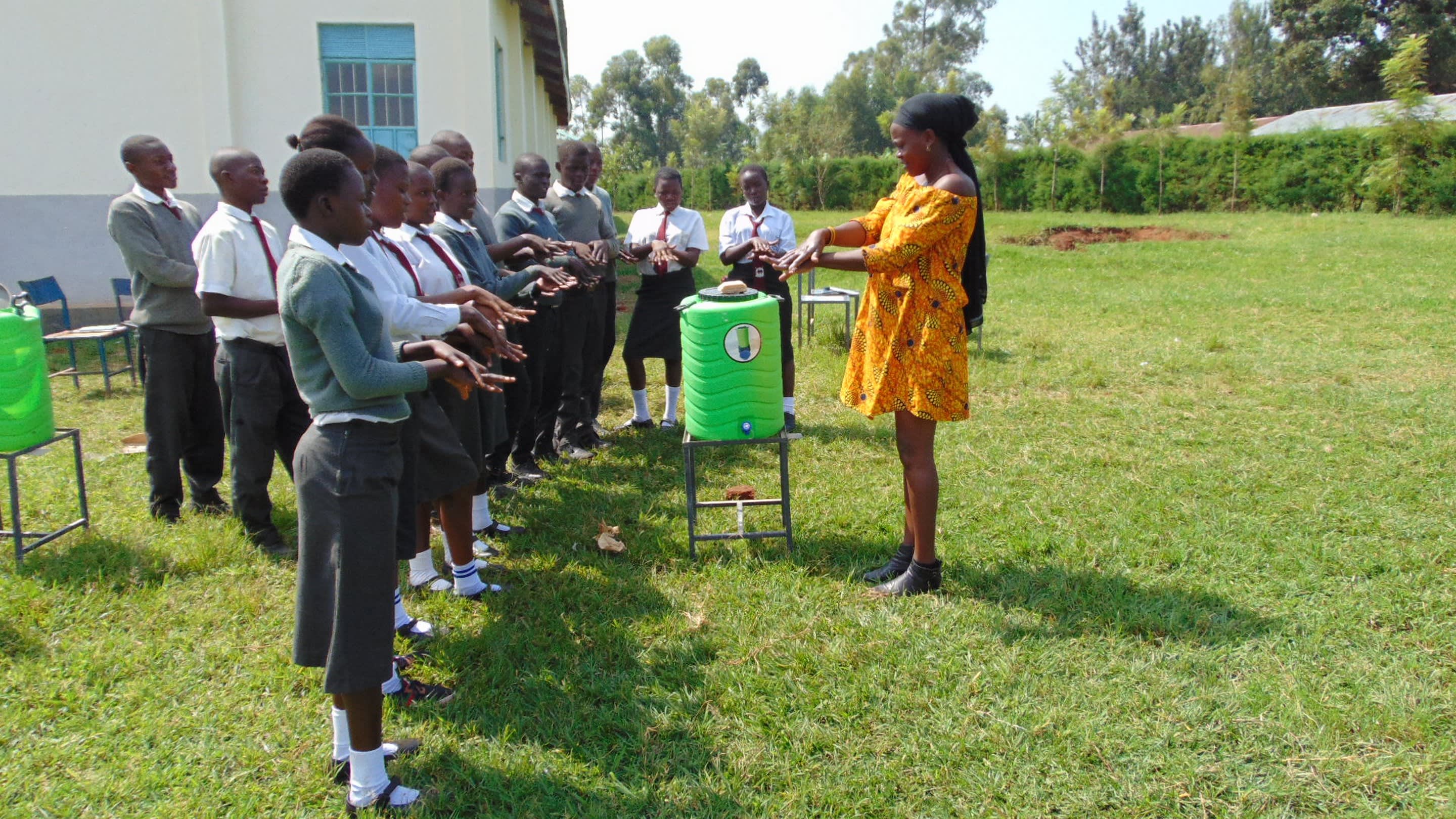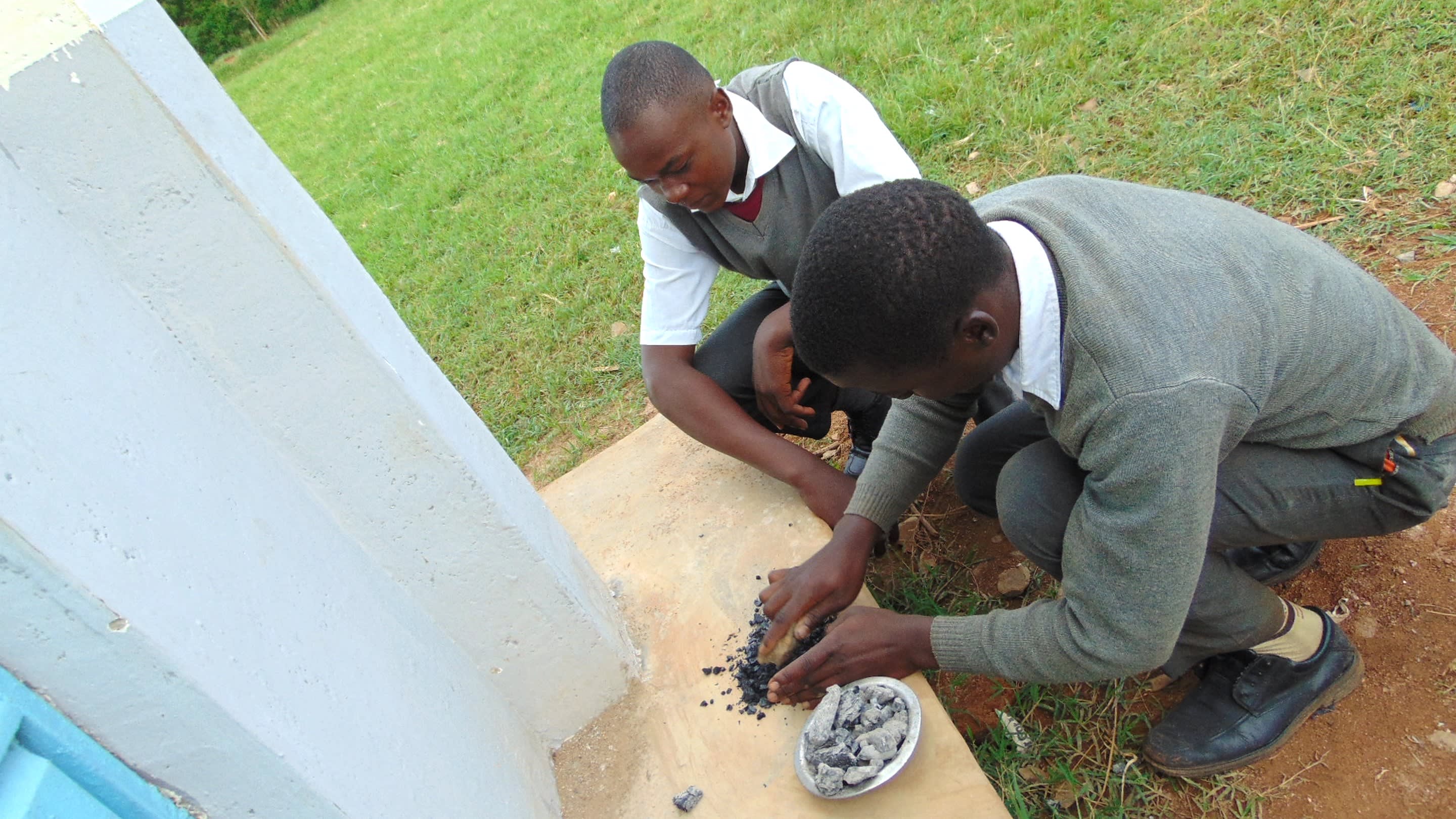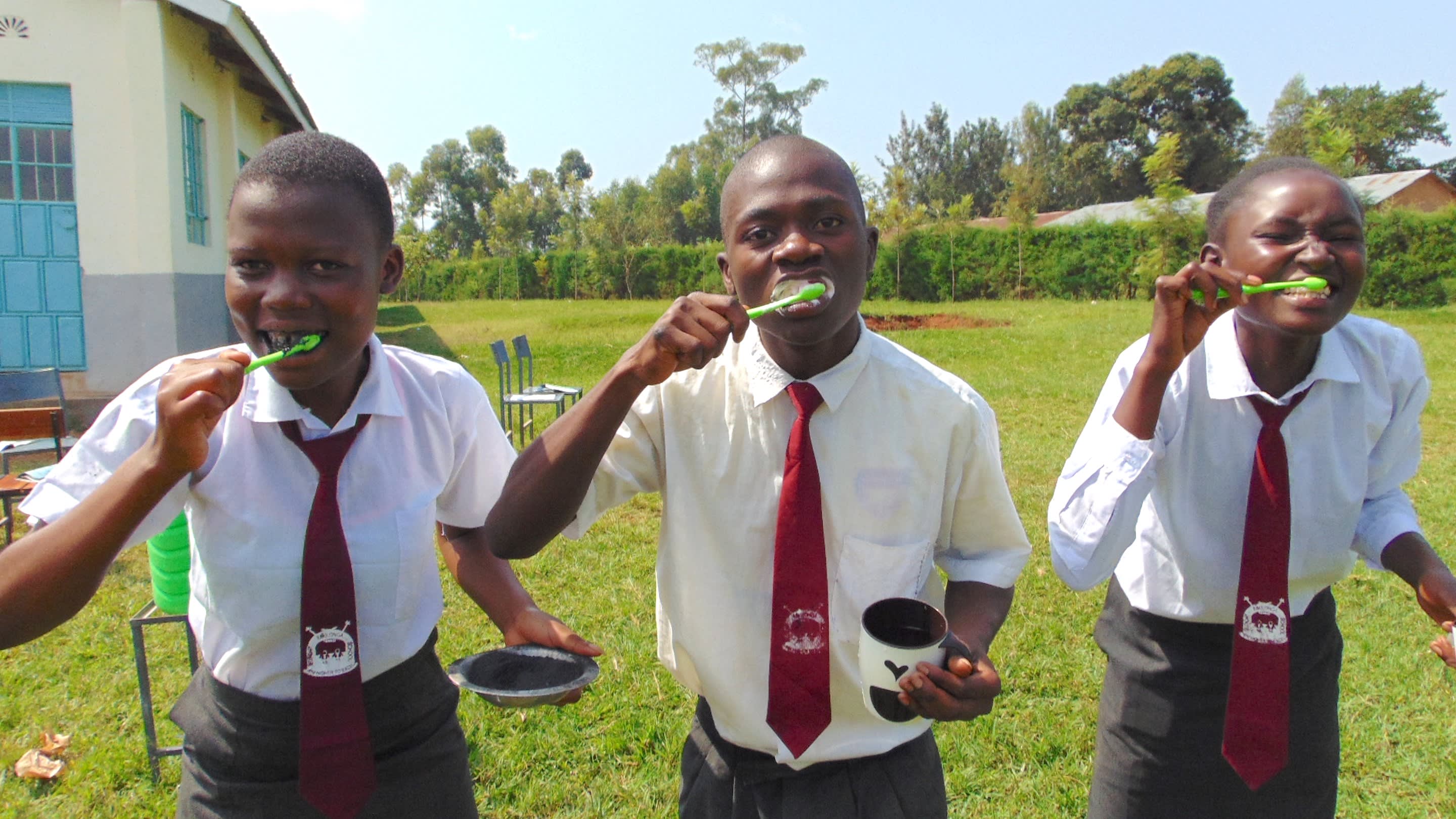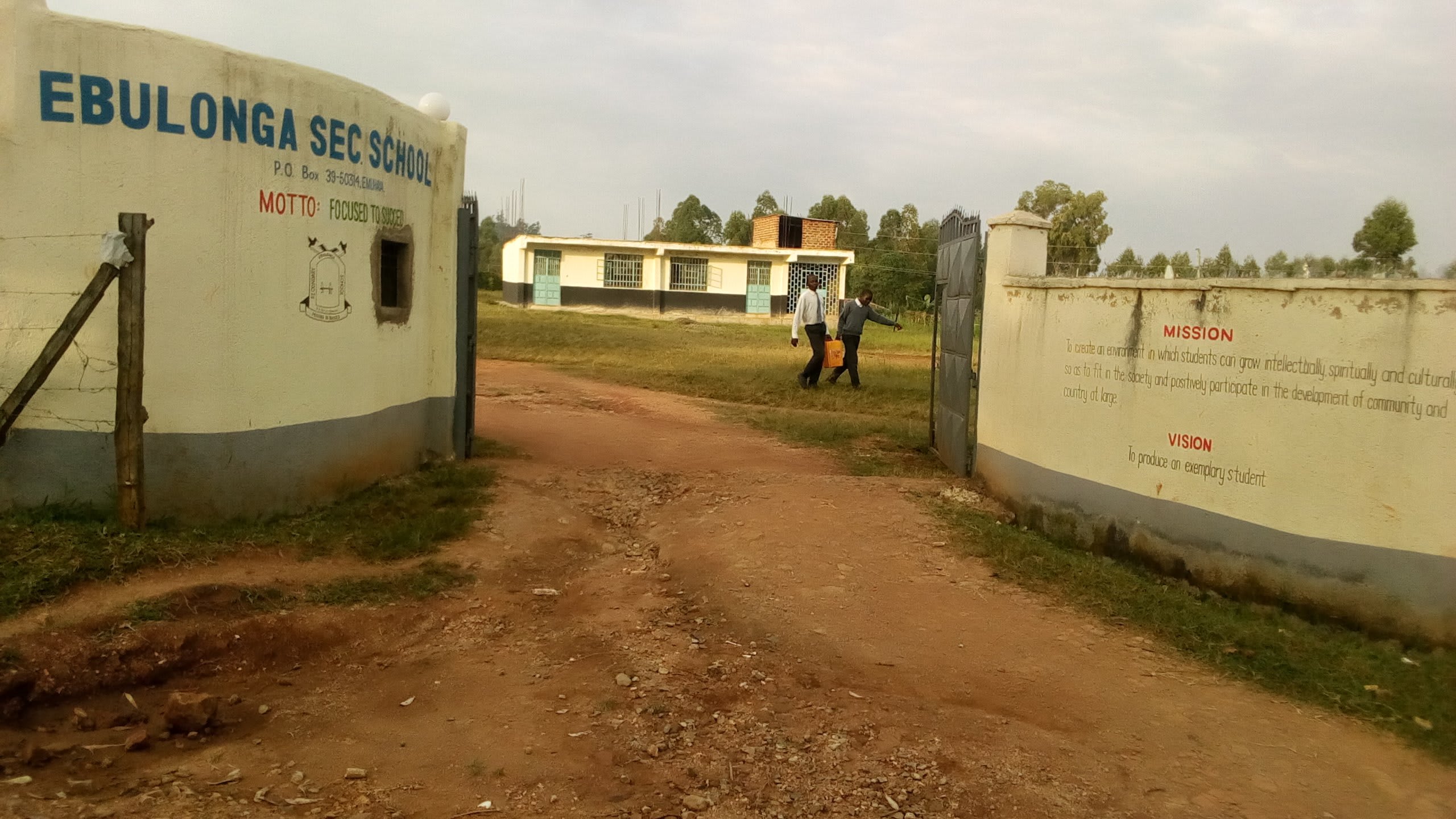Ebulonga Mixed Secondary School was started in 2007. The community saw the need for a secondary school for their children so they would not have to walk to a different community for an education. There are currently 389 students enrolled who are taught and supported by 26 teachers and staff.
Students attending Ebulonga Mixed Secondary School has to wake up early. They have to walk to school and ensure that the school gate that closes at 6:30 am does not shut them out. There is a morning study hall that goes until they do some cleaning of the school compound and facilities. Then, there is a break for students to buy snacks from women who set up stands nearby. Later, a lunch of maize and beans is served. Extracurricular activities like journalism, science club, and math club are offered after afternoon classes.
The school has a small plastic tank that collects water delivered by tap via the ministry of water. However, water services in the area are extremely unreliable. In the first 3 months of 2019, the school had already gone through 30 days without running water.
The students and staff here are experiencing a hard time due to the scarcity of water. They are forced to go thirsty when water is not pumped by the supplier, and the school has to look for other means to ensure that the school kitchen operates. This has forced them to pay local people to look for and bring water back to the school. With this kind of water delivered from unknown sources, the students here have had health challenges.
"The water is so unreliable and this causes students to go thirsty, especially after meals since there is no water in school to drink. Doing our cleaning also becomes a problem simply because we don't have a reliable source of water," said Deputy Principal Anindo.
"We really are trying hard to ensure that our state of sanitation and hygiene is good, but the challenge we are having is water scarcity. We encourage our students to work on their personal and environmental hygiene. I can say we are not doing badly off but with enough water, we would do more," said Teacher Kagehi.
What we can do:
Rain Tank
A 50,000-liter rainwater catchment tank will help alleviate the water crisis at this school. The school will help collect the needed construction materials such as sand, bricks, rocks, and water for mixing cement. We will complement their materials by providing an expert team of artisans, tools, hardware, and the guttering system. Once finished, this tank will begin catching rainfall that will be used by the school’s students and staff for drinking, handwashing, cooking, cleaning, and much more.
We and the school strongly believe that all of these components will work together to improve standards at this school, which will help lead to better student academic performance and will help unlock the opportunity for these students to live better, healthier lives.
Handwashing Stations
There is currently nowhere for students to wash their hands after using the latrines or before eating lunch, let alone the water to do so.
The student health club will oversee the 2 new handwashing stations we will provide, and make sure they are kept clean and in working condition. The club leaders will fill the handwashing stations with water daily and make sure they are always supplied with a cleaning agent such as soap or ash.
VIP Latrines
2 triple-door latrine blocks will be constructed with local materials that the school will help gather. 3 doors will serve the girls while the other 3 will serve the boys. All of these new latrines will have cement floors that are designed to be easy to use and to clean. And with a rain tank right on school property, there should be enough water to keep them clean.
Training
We will hold a 1-day intensive training on improved hygiene, health, and sanitation habits at this school. Our team of facilitators will use a variety of methods to train students and staff, including participatory hygiene and sanitation transformation (PHAST) and asset-based community development (ABCD). We will initiate a child-to-child (CTC) student health club, which will prepare students to lead other pupils into healthy habits at school and at home. We will also lead lectures, group discussions, and provide illustrative handouts to teach health topics and ways to promote good hygiene practices within the school. We will then conduct a series of follow-up trainings before transitioning to our regularly scheduled support visits throughout the year.

 Rainwater Catchment
Rainwater Catchment
 Rehabilitation Project
Rehabilitation Project














